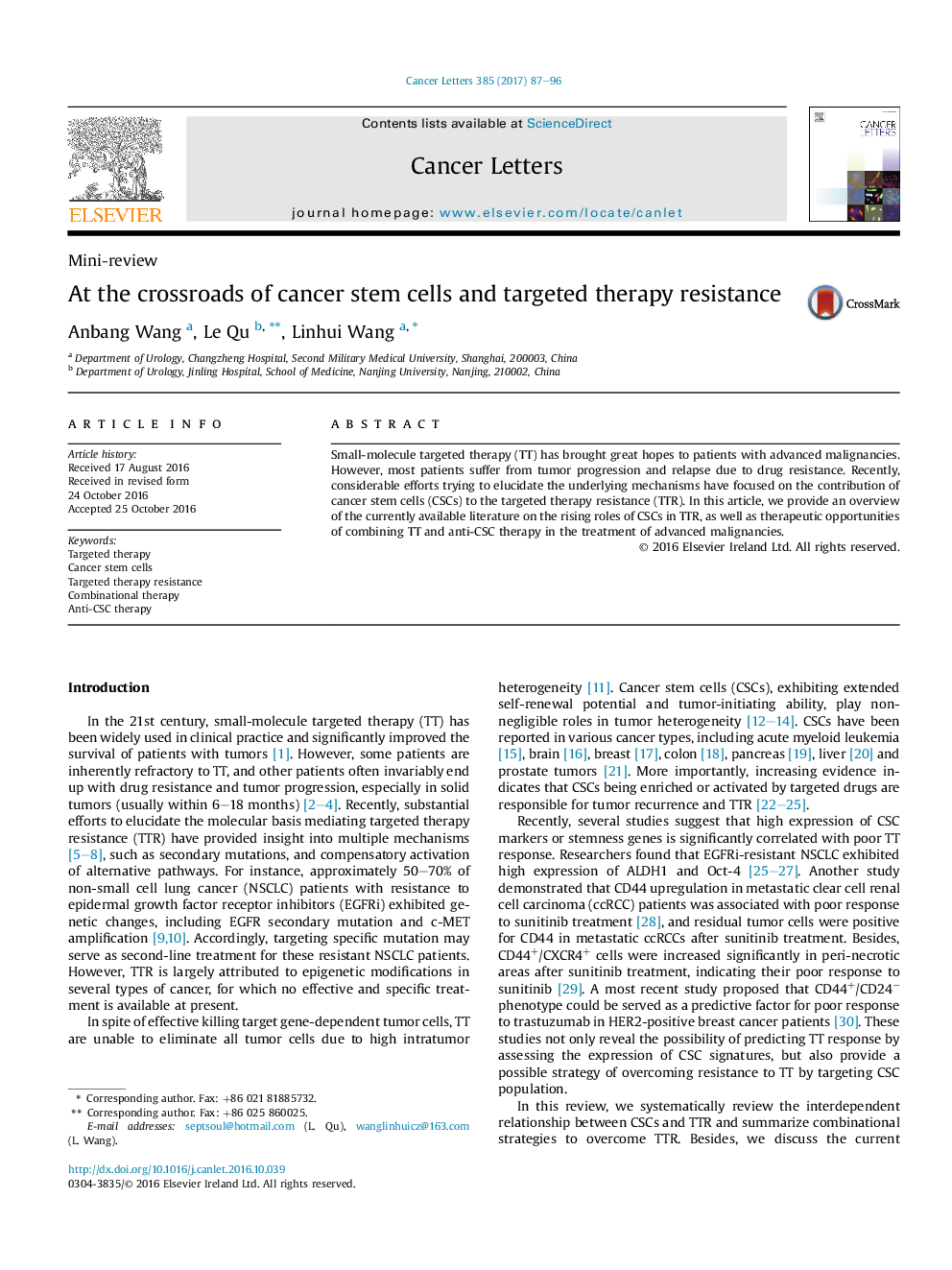| Article ID | Journal | Published Year | Pages | File Type |
|---|---|---|---|---|
| 5525707 | Cancer Letters | 2017 | 10 Pages |
â¢CSCs are activated by TT-induced tumor environment and epigenetic modifications.â¢CSCs mediate TTR through self-renewal, survival ability, drug efflux and dormancy.â¢Combination treatment of TT with anti-CSC agents improve the efficacy of TT.â¢The application of anti-CSC therapy necessitate several careful considerations.
Small-molecule targeted therapy (TT) has brought great hopes to patients with advanced malignancies. However, most patients suffer from tumor progression and relapse due to drug resistance. Recently, considerable efforts trying to elucidate the underlying mechanisms have focused on the contribution of cancer stem cells (CSCs) to the targeted therapy resistance (TTR). In this article, we provide an overview of the currently available literature on the rising roles of CSCs in TTR, as well as therapeutic opportunities of combining TT and anti-CSC therapy in the treatment of advanced malignancies.
Graphical abstractDownload high-res image (213KB)Download full-size image
